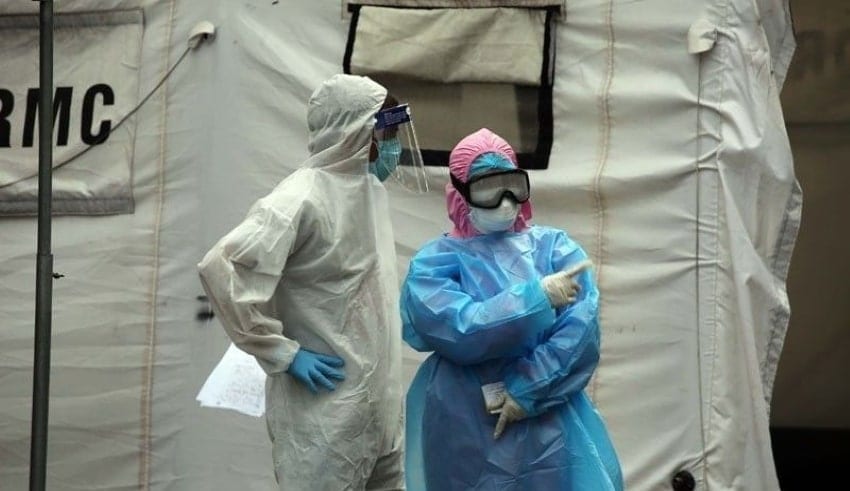
When the travel ban on medical staff is lifted in January, the Philippines is supposed to still have enough health professionals to battle COVID-19.
This is the reason why Harry Roque said President Duterte had sought the assurance of the Department of Health (DOH) that before accepting the proposal to lift the ban on deployment, the country would have enough health staff. In fact, The President did not reply instantly because he had to contact DOH’s Secretary Francisco Duque (III) to ensure that we have enough nurses here in our country.
Resolution 9 of the Management Board released by the Philippine Overseas Jobs Administration (POEA) lifted the ban on the deployment of health employees. Although only up to 5,000 health workers will serve overseas each year, Roque said that in due course the deployment limit may be expanded. The proposal will take effect on Jan. 1, 2021.
WATCH: POEA Administrator, Undersecretary Bernard Olalia said that the Philippines is now accepting applications from foreign employers who want to hire Filipino healthcare workers, especially nurses.#COVID19PH #WeHealAsOne #WorkingPCOO #LagingHandaPH pic.twitter.com/CBOsXqQNcM
— PCOO Global Media Affairs (@pcooglobalmedia) November 24, 2020
The moratorium on deployment, which took effect last April, was supposed to ensure that the Philippines would have ample manpower to fight the COVID-19 pandemic.
But there is no cause yet to rejoice the lifting of the deployment ban for the Filipino Nurses United (FNU) party, as there is no specific policy on how to pick the 5,000 frontliners that will be permitted to leave the country. Philippine Overseas Employment Administration (POEA) Administrator Bernard Olalia said they are still waiting for the IATF resolution that will instruct them on how to apply the cap.
He provided assurance that while the POEA has yet to obtain the resolution, the applications of frontliners will continue to be approved and processed. Labor Secretary Silvestre Bello III told the public that the cap is only temporary and that depending on the country’s COVID-19 situation, this would be raised to around 8,000.
























